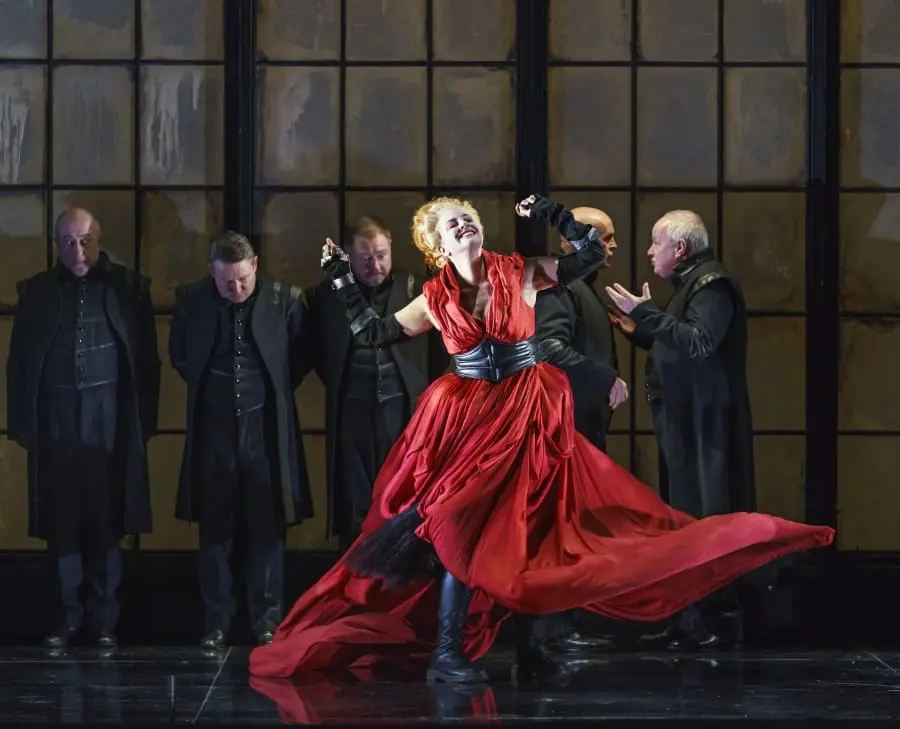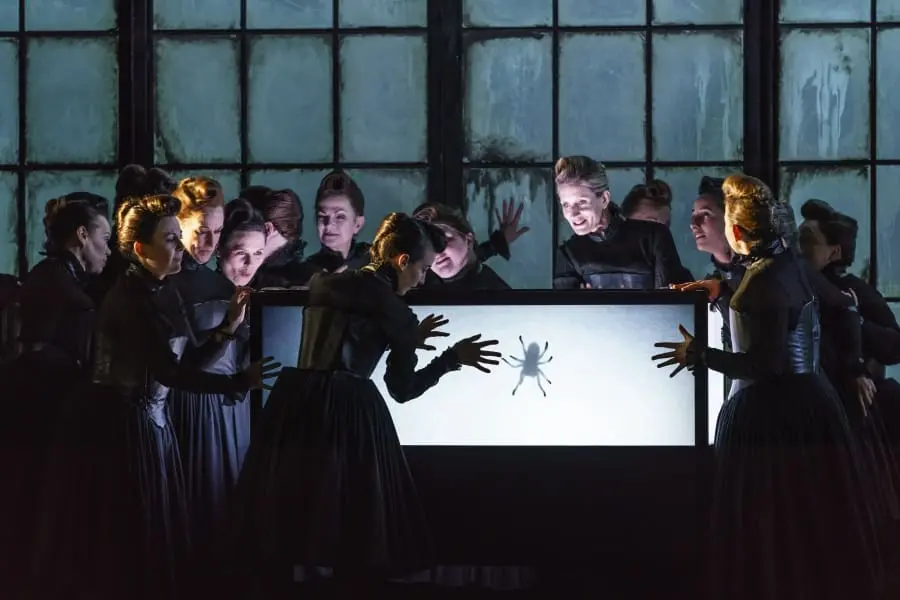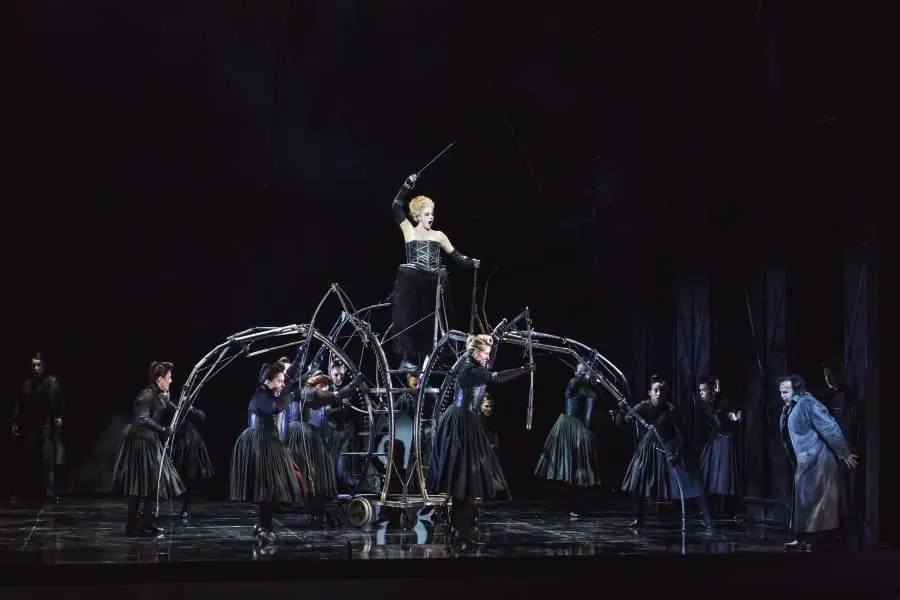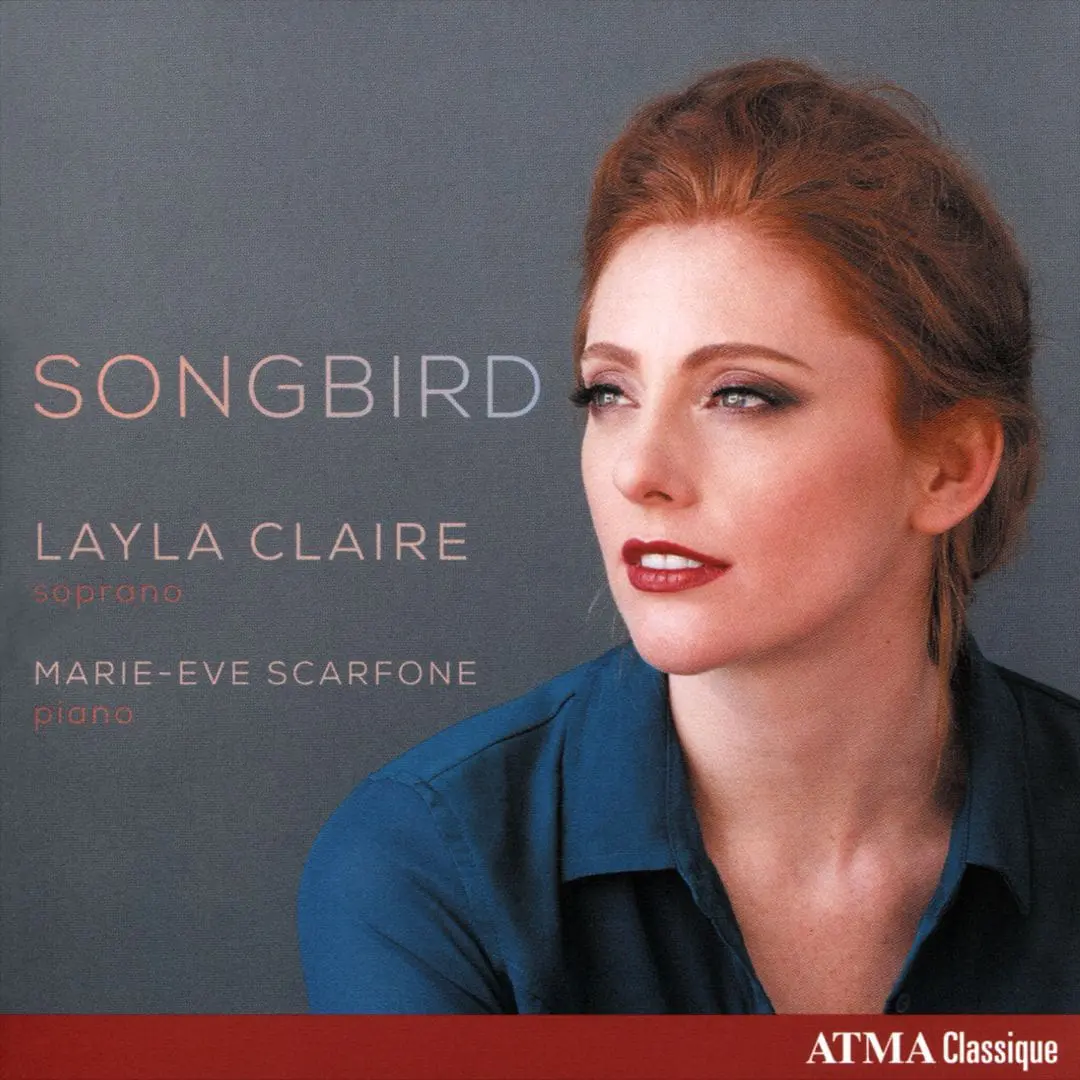Of course it is a gross simplification to say that Donizetti is all about the singing; but the focus is undeniably on beautiful, exciting and agile voices. And Welsh National Opera’s 2019 presentation of Roberto Devereux, which I saw in Birmingham on Mar. 8th, certainly delivered on that score. There were three truly outstanding vocal performances, and consistent high quality throughout the cast. Add to that wholehearted singing from the chorus, blazingly intense orchestral playing and masterly conducting from Carlo Rizzi, and you end up with a thrilling evening.
Elisabetta (i.e., the historical Elizabeth I of England) was sung by Joyce El-Khoury, the Lebanese-Canadian artist who has become the bel canto soprano of choice in Britain, already sought after in a range of styles worldwide. Her technique, good taste, musical intelligence and stylishness were beyond reproach in this performance. Perhaps she was better at drawing the audience into intimate, confessional passages than in conveying imperiousness, but perhaps again that added depth to the characterisation. And perhaps the voice at present lacks the degree of individuality that lifts a handful of artists into the elite. However, this is a singer of rare classiness.

Justina Gringytė (Sara) & Joyce El-Khoury (Elisabetta) in WNO’s Roberto Devereux. Photo: Bill Cooper
Opposite her as Sara, Duchess of Nottingham, was the Lithuanian-born, Welsh-trained Justina Gringytė, a young singer whose current signature role is Carmen. She was utterly convincing in this very different part, portraying Sara’s passion and anguish with smouldering tone and clarion projection in all but the deepest chest notes (Sara’s first couple of arias lie a little low for a high mezzo). Gringytė is a fine actress whose range of vocal characterisation is equal to her ability to portray significant shifts of mood—a major career could be beginning here.
The title role of Roberto Devereux, Earl of Essex, was taken by the English tenor Barry Banks, and a more affecting display of lirico singing you could not hope to hear. His dungeon aria “Ed ancor la tremenda porta” was delivered with utter purity of timbre and exquisite phrasing; the poignant, still centre of the drama. Banks’s only handicap is his lack of physical stature and consequently stage presence, but few tenors can match him for a combination of expressive sensitivity and velvet smoothness, and he was on top form.
I said that there were three outstanding principals, so the reader may have deduced that the role of Nottingham was not performed to quite the same high level of accomplishment. It should therefore be made clear that Roland Wood had not been scheduled to take over the role for another three weeks and was stepping in at short notice for an indisposed baritone. He certainly showed a pleasing depth of tone, but his vibrato was obtrusive and his singing had a rather oratorio-like formality, not changing with the dramatic circumstances. There were no reservations concerning the remaining, minor roles, however, with Robyn Lyn Evans (Cecil), George Newton-Fitzgerald (page), Wyn Pencarreg (Raleigh) and Philip Smith (Nottingham’s Confidant) all genuinely impressive.
WNO has had the immense good fortune of a long association with conductor Carlo Rizzi, and no one is more at home in, or committed to, the Italian repertoire. Even by his elevated standards this was a tremendously gripping performance, with the orchestral woodwinds fiery and forward, the timpani resounding like rifle shots, and a sense of eager urgency from every player and singer from first bar to last.
This leaves us, obviously, with the production—a revival of one by Alessandro Talevi, first seen in 2013. Madeleine Boyd’s designs seemed to have been set in that part-gothic, part futuristic realm of fantasy fiction known by aficionados as steam-punk. The women wore high corsets resembling body armour, the men adaptations of frock-coats. The predominant colour of the costumes and sets was black, with Elisabetta alone given a bight scarlet dress. The rear wall had translucent windows through which moving silhouettes could be seen, echoing the vivarium downstage right, where a large spider crawled. This, it initially seemed, was a nicely subtle implication that the Queen was at the centre of a web of intrigue.
However, in Act II, Elisabetta climbed aboard a carriage that unfolded into a gigantic mechanical spider, atop of which she brandished a riding crop while menacing her courtiers. So much for subtlety—no wonder sections of the audience were giggling. A rather dull production, then, quickly became a silly one. Fortunately, as I hope I have made clear, the evening’s considerable musical virtues made all that seem delightfully irrelevant.


















